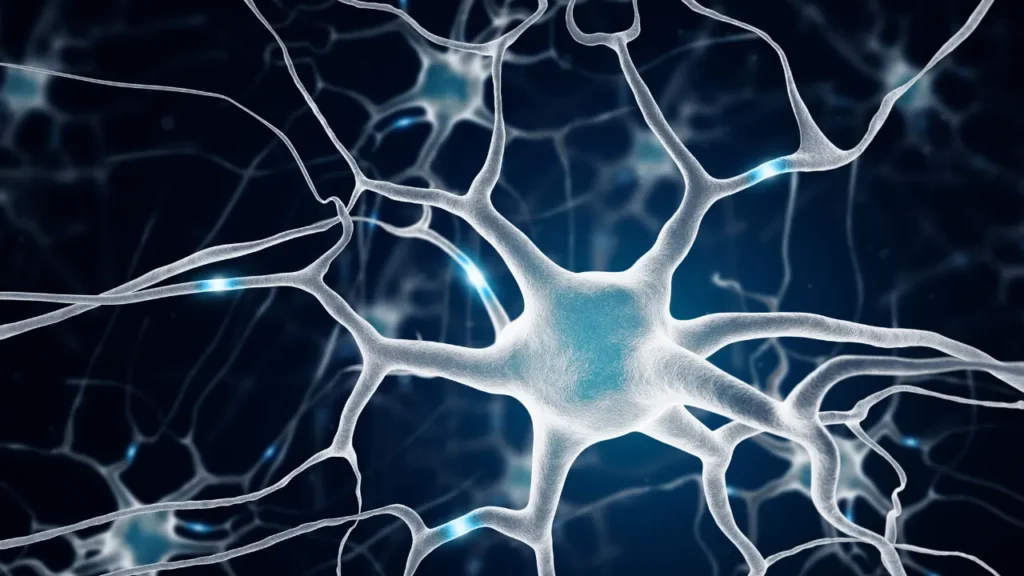The perennial herb, yin chen (artemisia capillaris), commonly referred to as capillary wormwood, is a member of the asteraceae family. It has a lengthy history of use as a medicinal agent for several illnesses in traditional Chinese medicine (TCM). The plant has a wide range of biological benefits, including hepatoprotective, anti-inflammatory, and antioxidant properties. This article includes a thorough analysis of the chemistry, physiological effects, potential health benefits, ideal dosage, side effects, and potential drug interactions of yin chen.
You May Also Like:
Battle of the Brain Boosters: Brain MD Omega 3 Power vs. Kori Krill Oil Mind & Body
Build Bright Brains with Omega-3s: The 7 Powerful Benefits for Brain Development in Kids
Yin Chen: Benefits, Dosage, Side Effects, Drug Interactions, And Other Important Information is an original (NootropicsPlanet) article.
Nature of Yin Chen
Artemisia capillaris, also known as yin chen, is indigenous to East Asia, including China, Korea, and Japan. It is distinguished by its slender, upright stems, which can reach heights of 50 to 100 cm. During the blooming season, the plant produces tiny yellow flowers and leaves that are beautifully split and fluffy.
Yin chen is regarded as a “cooling” herb in traditional Chinese medicine since it is said to eliminate heat and toxins from the body, particularly the liver and gallbladder. It is frequently used in TCM formulations to treat ailments including jaundice, fever, and inflammatory illnesses that are brought on by an excess of heat. The plant’s aerial components, which include the leaves, stems, and flowers, are collected and dried for use in extracts, tinctures, concoctions, and other preparations.
Health Benefits
Since ancient times, TCM has used yin chen to treat a variety of illnesses. The following are a few of the most noteworthy health advantages linked to its use:
Liver Health:
Yin chen’s hepatoprotective properties make it a potent treatment for conditions including cirrhosis, fatty liver disease, and hepatitis that affect the liver. Its anti-oxidant and anti-inflammatory properties help promote healthy liver function and regeneration by lowering oxidative stress and liver inflammation.
Improved digestive health is a result of yin chen’s anti-inflammatory and antispasmodic effects. It can relieve gastrointestinal disorder symptoms such as bloating, indigestion, and pain in the abdomen.
Immune System Support:
Numerous studies have shown that yin chen has immunomodulatory effects. Through modulating the synthesis of cytokines and other immune system components, its bio-active substances can improve immune health and lower the risk of infections.
Skin Health:
Yin chen’s anti-inflammatory and antioxidant properties can be beneficial for your skin. It can aid in the reduction of oxidative stress and inflammation, which are frequently linked to skin diseases like psoriasis, eczema, and acne.

Chemistry of Yin Chen
The aerial portions of yin chen, including the leaves, stems, and flowers, are where the majority of the plant’s bio-active chemicals are concentrated. There have been several classes of substances discovered, such as flavonoids, sesquiterpenes, coumarins, and essential oils. The following elements makeup yin chen most prominently:
Flavonoids:
These phenolic substances have anti-inflammatory and anti-oxidant properties, including scopoletin, capillarisin, and 6-methoxy-7-O-D-glucopyranosyl-coumarin.
Sesquiterpenes:
The sesquiterpene lactones artemisinin and arteannuin were discovered in yin chen. They have strong anti-inflammatory, anti-cancer, and anti-malarial properties.
Coumarins:
Capillarisin, scoparone, and scopoletin are examples of the coumarin class of substances. Their anti-inflammatory, antioxidant, and vasodilatory properties are extremely prominent.
Essential Oils:
Monoterpenes and sesquiterpenes including -pinene, -pinene, and caryophyllene are present in the essential oil derived from yin chen. Anti-inflammatory, antibacterial, and antispasmodic properties are displayed by these substances.
Physiological Properties of Yin Chen
The bio-active components of yin chen, which interact with many physiological processes in the body, are responsible for its wide range of pharmacological effects. The following are some of the main mechanisms of action:
Sesquiterpenes:
Interleukin-1 (IL-1), interleukin-6 (IL-6), and tumor necrosis factor-alpha (TNF-alpha) are examples of pro-inflammatory cytokines that have been proven to be inhibited by flavonoids and sesquiterpenes found in yin chen.
Coumarins:
Coumarins, including scoparone and scopoletin, have been shown to have hepatoprotective properties against liver damage. They can prevent liver damage by altering the expression of genes related to lipid metabolism, inflammation, and oxidative stress.
Antioxidants:
Strong antioxidant qualities are present in Yin Chen’s flavonoids and coumarins, which can scavenge free radicals and reduce lipid peroxidation. This prevents oxidative damage to biological components and lowers the risk of chronic illnesses.
Flavonoids:
Flavonoids in yin chen exhibit neuroprotective properties, protecting neurons from oxidative stress-induced damage and pointing to potential uses in the prevention and treatment of neurodegenerative disorders.

Optimal Dosage
Depending on factors such as your individual health problems, age, and your intended therapeutic use, the ideal dosage of yin chen can change. However, the following guidelines are often suggested for using yin chen as a dietary supplement:
Dried Herb: 5-15 grams daily, taken as a decoction or infusion.
Extracts: 1-2 grams of dried extract, taken in capsule or tablet form.
Tincture: 2-4 milliliters (40-80 drops) taken three times daily.
Side Effects and Contraindications
When taken in moderation, yin chen is typically regarded as safe. However, excessive use could result in negative consequences like:
Gastronintestinal Issues: Abdominal pain, nausea, vomiting, diarrhea, or other gastrointestinal upset may result from consuming too much yin chen.
Allergic Reactions: Some people can be allergic to yin chen or its ingredients, which could result in signs and symptoms include skin rashes, itching, or breathing problems.
Lack of information makes it difficult to determine whether yin chen is safe to take during pregnancy and while breast feeding. It is advised to refrain from using it during these times unless instructed to do so by a healthcare provider.
Allergic Interactions and Safe Use
Yin chen is normally thought to be safe when used in moderation. Consuming too much yin chen, however, can have unfavorable effects such as abdominal pain, nausea, vomiting, diarrhoea, or other gastrointestinal problems. As previously stated, some allergic reactions that can manifest include rash, itching, or respiratory issues.

Best Responsible Use of Yin Chen
It is crucial to follow the following recommendations in order to take yin chen as a dietary supplement in the most advantageous and secure manner possible:
1. Speak with a Healthcare Professional: It’s important to speak with a licensed healthcare professional before adding yin chen to your supplement program. Based on your individual needs and conditions, they can offer tailored advice on the proper dosage and usage time.
2. Pick Products of High Quality: Make sure you’re taking a yin chen supplement of the highest caliber from a reliable supplier. Avoid items containing synthetic additions, fillers, or contaminants and look for products whose purity and potency have been independently evaluated.
3. Follow Recommended Dosages: Follow the dosage recommendations listed in section 4 of this article or those given to you by your healthcare provider. Overdosing might raise your risk of experiencing negative side effects or drug interactions.
4. Watch for Side Effects: Recognize possible side effects (section 5) and stop using if any negative consequences manifest. If symptoms become severe or life-threatening, get medical help right away.
5. Be Wary of Potential Interactions: Think about how yin chen might interact with any drugs or dietary supplements you might be taking (section 6). To ensure a secure combination and reduce the possibility of negative effects, speak with your healthcare provider.
Yin Chen:
Conclusion
You can maximize the health advantages of yin chen while lowering potential dangers and negative effects by adhering to these responsible use recommendations. It is significant to emphasize that these suggestions are not meant to replace qualified medical guidance. Before beginning any new supplement regimen, seek the advice of a licensed healthcare professional.

References:
- Hepatoprotective effects of Artemisia capillaris and its bioactive components. Retrieved from: https://www.ncbi.nlm.nih.gov/pmc/articles/PMC6517001/
- Anti-inflammatory activity of flavonoids from Artemisia capillaris. Retrieved from: https://www.researchgate.net/publication/324697973_Anti-inflammatory_activity_of_flavonoids_from_Artemisia_capillaris
- Artemisia capillaris: A review of its traditional uses, phytochemistry, and pharmacology. Retrieved from: https://www.researchgate.net/publication/306366914_Artemisia_capillaris_A_review_of_its_traditional_uses_phytochemistry_and_pharmacology
- Neuroprotective effects of flavonoids from Artemisia capillaris against oxidative stress-induced neuronal cell damage. Retrieved from: https://www.researchgate.net/publication/230670333_Neuroprotective_effects_of_flavonoids_from_Artemisia_capillaris_against_oxidative_stress-induced_neuronal_cell_damage
Important Note: The information contained in this article is for general informational purposes only, and should not be construed as health or medical advice, nor is it intended to diagnose, prevent, treat, or cure any disease or health condition. Before embarking on any diet, fitness regimen, or program of nutritional supplementation, it is advisable to consult your healthcare professional in order to determine its safety and probable efficacy in terms of your individual state of health.
Regarding Nutritional Supplements Or Other Non-Prescription Health Products: If any nutritional supplements or other non-prescription health products are mentioned in the foregoing article, any claims or statements made about them have not been evaluated by the U.S. Food and Drug Administration, and such nutritional supplements or other health products are not intended to diagnose, treat, cure, or prevent any disease.


